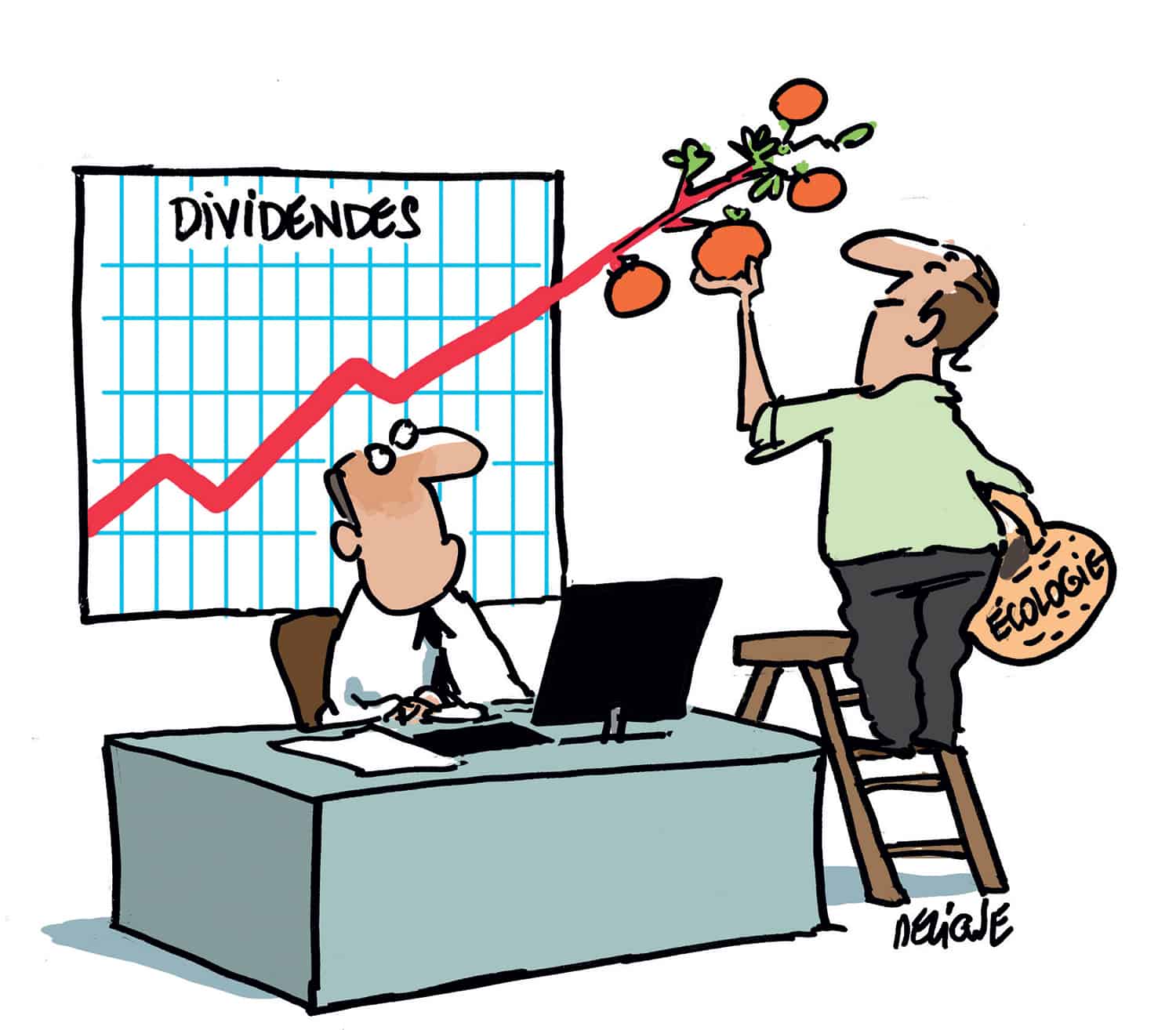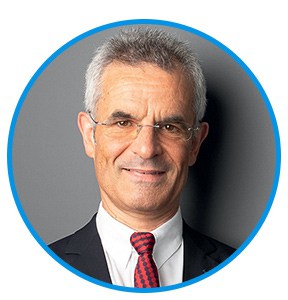An Environmental Tax on Dividends?

FOR
“Contributing to the ecological-transition effort concerns everyone.”

The tax on dividends proposed by the Citizens Convention on Climate (CCC) aims to “support the financing of transforming companies’ manufacturing activities” into green projects. Concretely, companies distributing more than 10 million euros in annual dividends would contribute 4% of the financing for this transformation (compared to 2% for dividends of less than 10 million euros). The Convention notes that “contributing to the ecological-transition effort concerns everyone”. This is the central issue in the debate. The yellow-vests movement showed just how much the principle of equality is threatened in our country. With Macron’s “national consulting” initiative and the CCC, he wants to show that he is taking into account the views of ordinary citizens (as well as information from specialists) in meeting climate-change challenges. So, there’s no point in taxing fossil fuels at gas pumps without also making those “first in line” (the country’s leading providers of dividends), and their stockholders, contribute as well.
Small streams become big rivers
A recent study by France Stratégie shows that the Solidarity Tax on Wealth and flat-tax reforms have boosted dividends to almost 40 billion euros. This is a significant amount, even if it’s less than the 50 billion euros recorded in 2009. Obviously, 4% of 40 billion, or less than two billion euros, will not be enough to finance the 50 billion or 60 billion euros in annual investments necessary to achieve the ecological transition. However, “small” streams become big rivers, and, most of all, a symbol resonates with everyone. In addition, the CCC proposes reducing the corporate tax base by deducting from a company’s taxable revenues any profits that it reinvests in cutting greenhouse-gas emissions.
Finally, the ecological transition will bring medium-term benefits for all economic players. The greater resilience regions will achieve will be crucial in coping with heat waves, major storms, flooding and recurring forest fires. Covid 19 is a warning. It shows that advance planning is a profitable investment. As an example, China and South Korea, having learned from past experiences, have suffered much less than the rest of the world. The anticipated climate and biodiversity upheavals will be much worse than those caused by the pandemic. We therefore have to view the ecological transition as a kind of insurance that will let us reduce the costs of future damage. The necessity of achieving ecological transition means that everyone should dip into their pockets to contribute, including through a modest tax on dividends.
AGAINST
“This tax threatens to discourage the French from investing in their companies’ capital’’

If taxation were the only solution to problems, France, the world champion in mandatory payments, would have resolved all its problems long ago. Can we even imagine a tactic less likely to achieve its objective? How can we think that manufacturers and operators of wind farms and solar and biomass power plants (which include groups like Orsted, Neoen, and midcap companies like Voltalia) would be able to finance themselves if not – at least in part – by regularly raising capital? Investors are in fact able to invest in these “green” companies thanks to earning dividends from other companies that they can then reinvest.
Change tax legislation to finance “green” projects
Taxing dividends, in fact, means to reduce the amount of capital in circulation and to therefore reduce the funds that investors can devote to financing the ecological transition. This tax risks discouraging French people from investing in their companies’ capital, which seems aberrant at a time when many French companies will clearly need more of their own capital to deal with the consequences of the pandemic. Also keep in mind that in 2017, France and Belgium were condemned by the High Court of the European Union for the taxes on dividends they implemented in 2012 and 2013, since these taxes were found to violate EU law. In the case of France, in fact, these taxes only brought in a bit more than two billion euros per year. The urgent need to bring about a transition to renewable energies and the investments necessary for achieving this require methods other than ones that could have come out of the Ancien Regime.
It seems to me that it would be better to eliminate tax advantages for life-insurance contracts in euros when these contracts are not invested in “green” projects. Contracts in euros represent 1.4 trillion euros in assets (out of the 1.785-trillion-euro life-insurance market in France). Even if eliminating this tax loophole resulted in only 10% of investment funds being reoriented toward green bonds, 140 billion euros would be earmarked for energy transition. This is 70 times more than the tax on dividends would bring in… Not to mention the fact that eliminating this tax loophole would boost government revenues. And it’s likely that this redirected amount would be more than 10%, given how interest in life insurance is largely based on its tax advantages.
Published by Flavia Sanches

